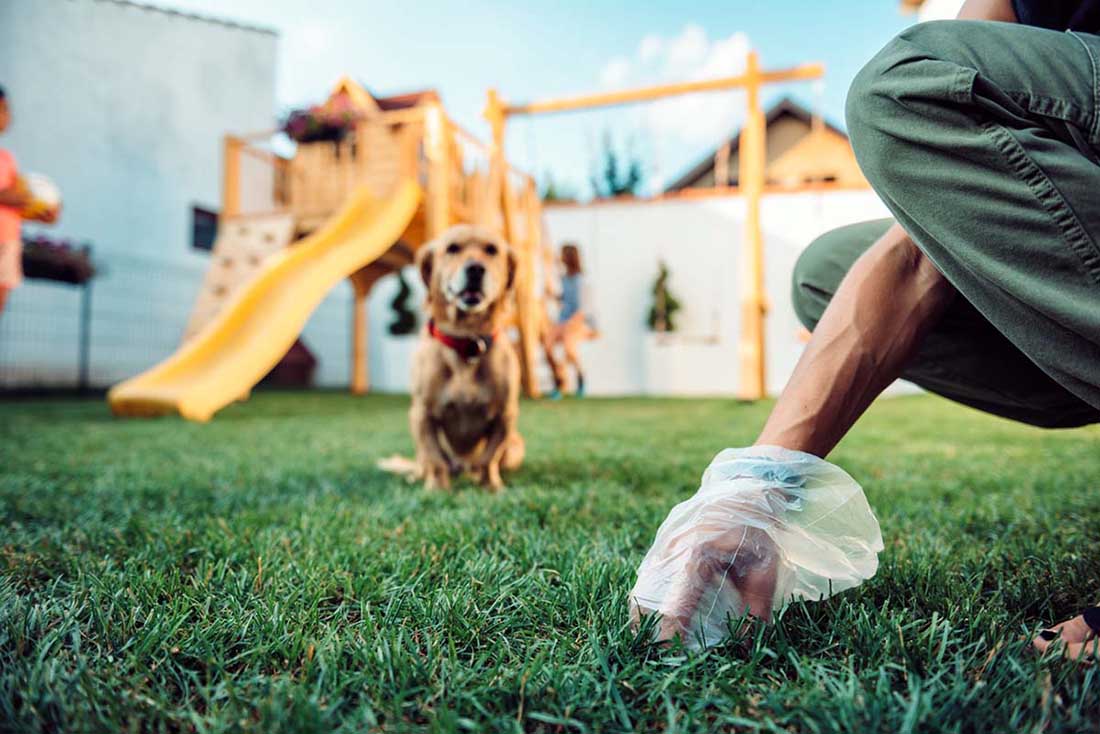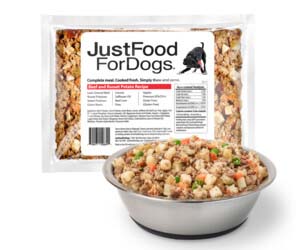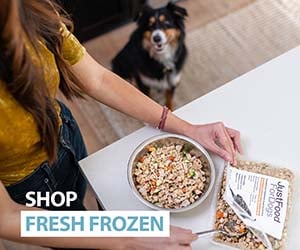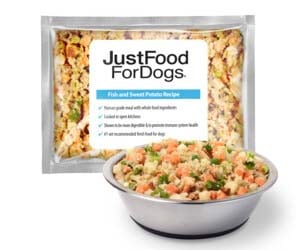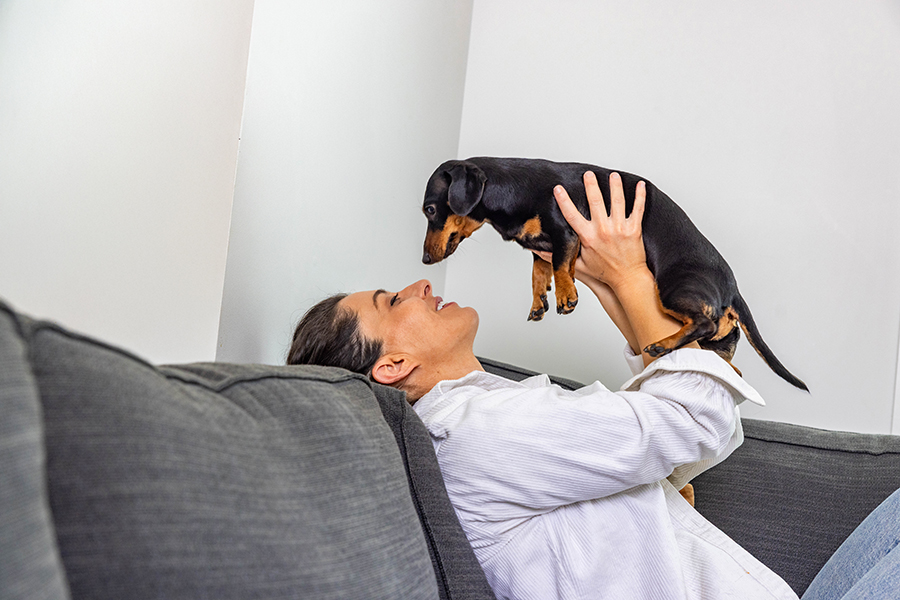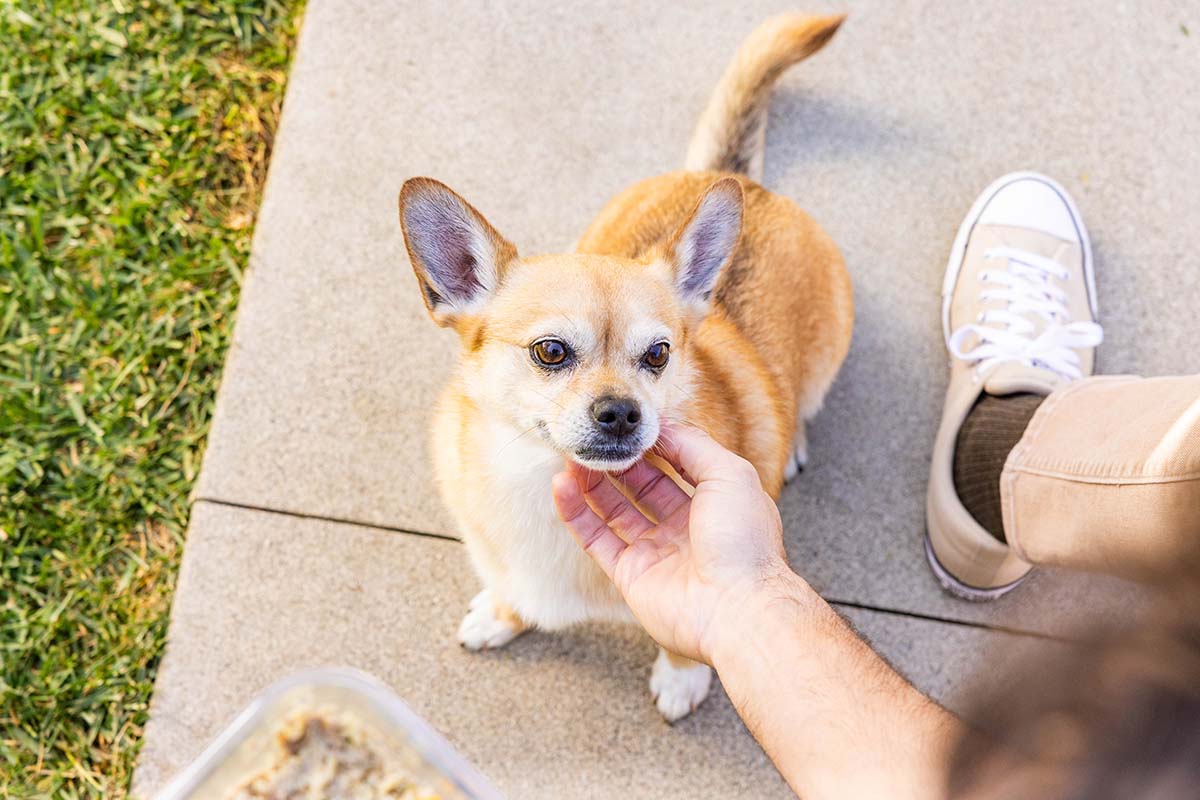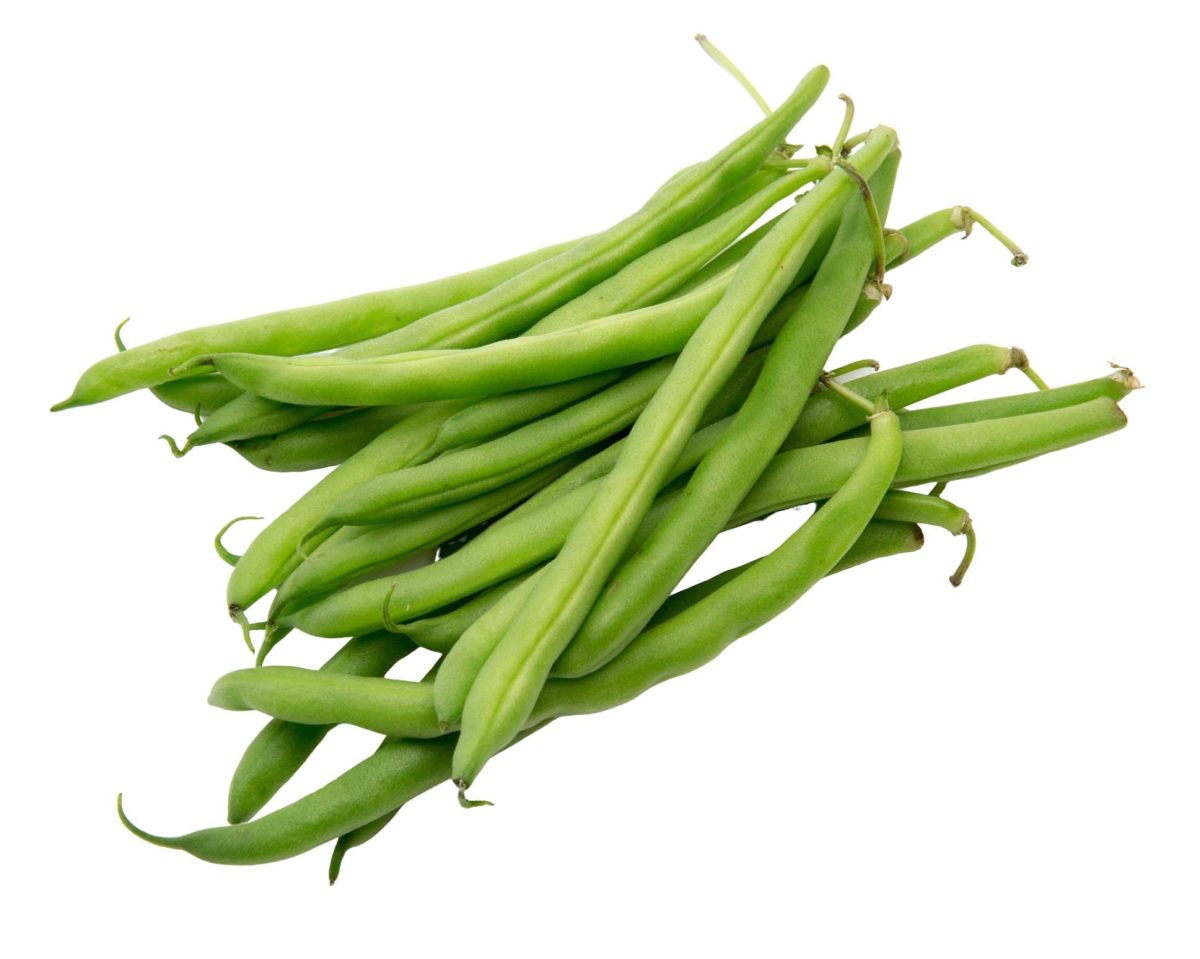4 Reasons Why Your Dog Is Pooping So Much
Does your dog have an excessive pooping problem? Here we explore why as well as the best dog food for less poop.
Does your dog poop a lot? Do what usually are single-poop walks turn into dreaded ‘double dump’ walks? Or even triple? That can be awkward, especially if you are down to your last poop bag.
If there is an increase in your dog’s bowel movements lately, there are a few factors to consider. Let’s take a look at some common causes behind excessive pooping as well as how to get your dog’s poop schedule back on track.
My Dog Poops a Lot More Than Normal. Why?
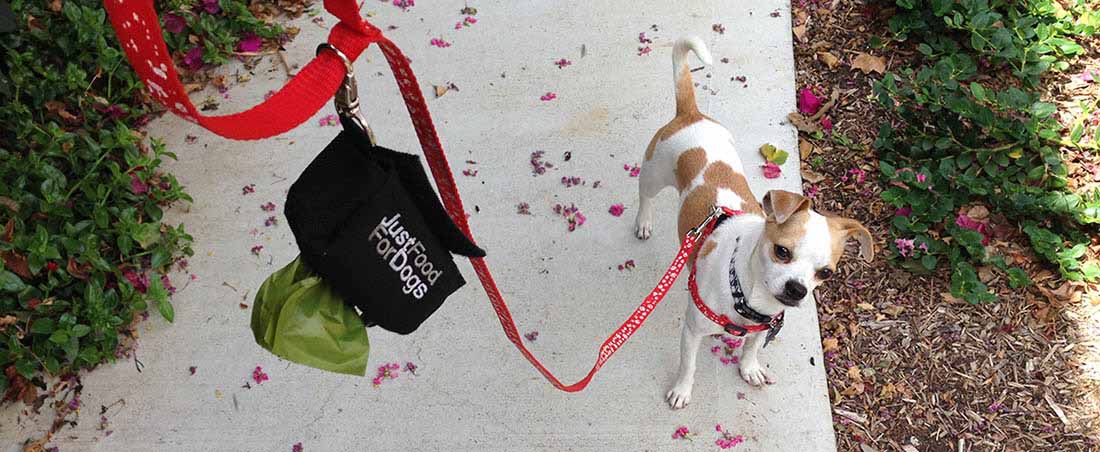
Dogs poop at different frequencies depending on their life stage. An adult dog that is generally healthy should poop 1-3 times per day. Puppies poop between four and five times a day, whereas older dogs/senior dogs poop around once a day.
If your adult dog is pooping more than that or there is any sudden change in your dog’s stool, he could be having simple digestive issues or an underlying medical condition.
Dog owners should be aware of the following possible causes of excessive pooping.
1. Bacterial infections or intestinal parasites
Infections from bacteria like Salmonella or E.coli can cause health issues like upset stomach, colitis, loose stools, and, of course, change in poop frequency. This is a risk if you are feeding your dog raw foods or if your dog is on a raw diet.
Changes in poop habits can also be symptoms of intestinal parasites like hookworm, roundworm, tapeworm, whipworm, and giardia. To find out the exact cause, you will need to bring in a stool sample to your veterinarian for testing.
2. Why is my dog pooping so much? Because they are eating too much.
Your dog could be pooping so much because of overeating, which is not good for digestive health. It might not be because you are overfeeding them, though. It could also be what they’re eating when you aren’t looking.
Do you leave your dog out in the yard unsupervised? If the dog eats miscellaneous items out there like sticks, twigs, dirt, grass, or mulch, it will likely get gastrointestinal upset followed by multiple defecations. Furthermore, eating non-food items could cause a blockage and be a choking hazard. Pet parents should always accompany their dogs outside to keep them from eating things they shouldn’t.
3. Dietary changes
Your dog’s diet and nutrition are key to its overall health. In general, it takes 5-10 days to transition a dog to a new food. Transitioning to a new food too quickly can upset your dog’s digestive system.
In addition, feeding the wrong type of food could cause an otherwise healthy dog to become an excessive pooper. Processed commercial kibble food brands with additives and preservatives can be the culprit. Talk to your veterinarian about a proper, high-quality diet that is gentle on your dog’s stomach and digestive tract and is appropriate for your dog’s health condition.
4. Stress
Stress affects your dog’s body in many ways. Stress can wreak havoc on the immune system causing diarrhea, constipation, and general changes in poop volume. Environmental stress like a big move, travel, new noises, or new family members are common contributors.
How Do I Get My Dog to Poop Less? Change What They Eat.
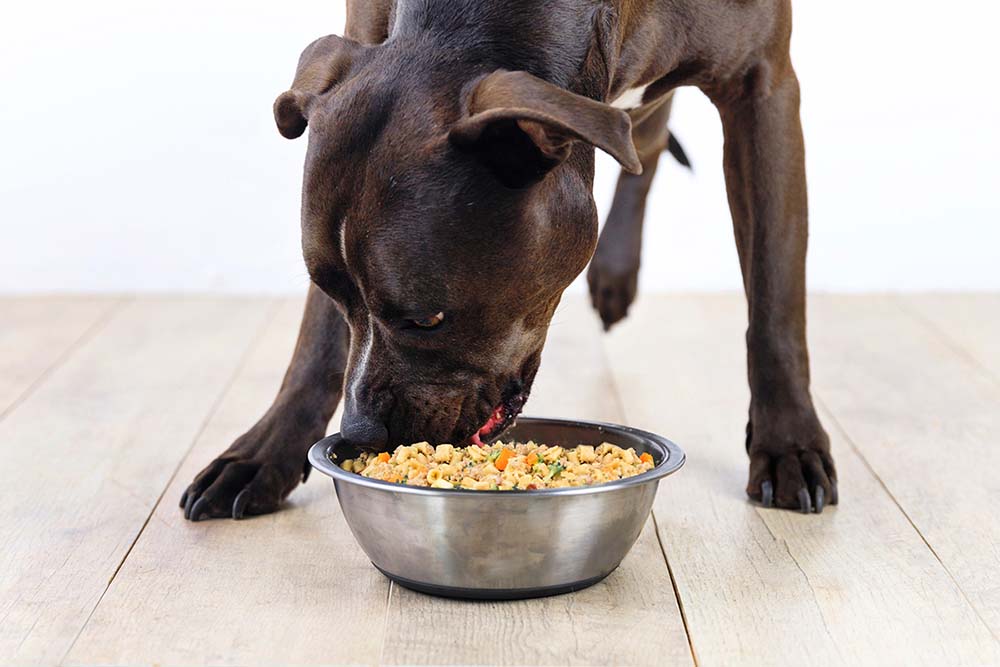
Nutrition is often at the root of bowel issues. If you have ruled out infection, illness, and stress, consider how your dog’s current diet is affecting its wellness.
What Happens To Dog Poo on a Whole Food Diet
It is a common occurrence that when you get your pet onto a fresh, whole-food diet, suddenly they’re not defecating as much.
Perhaps your dog used to poop 2-3 times a day and now only poops once a day. Or your dog’s poops are much smaller than they used to be. Good news: This is totally normal!
Take this study, conducted by the University of Illinois Department of Animal Sciences published in the peer-reviewed Journal of Animal Science. Dogs who ate JustFoodforDogs fresh whole food absorbed more nutrients than when on a diet of processed kibble. The dogs produced up to 66% less poop than when eating premium dry kibble pet food and up to 41% less feces when fed a feed-grade fresh processed brand.
Less waste in = less waste out!
Dr. Julie Stegeman, DVM of internal medicine, elaborates in the video below:
The Best Dog Food for Less Poop
The proven best dog food for less poop is fresh dog food made from whole-food, human-grade ingredients. Dry dog food and wet food, even ‘premium’ grain-free dog food, come with by-products (miscellaneous protein sources), additives, artificial flavors, artificial colors, fillers, and preservatives that are not suitable for sensitive stomachs.
JustFoodForDogs has diets made with high-quality ingredients like animal proteins, vegetables, whole grains, amino acids, healthy fats, fiber content, and carbohydrates tailored for superior nutrient absorption. Each diet is chockfull of vitamins and minerals your dog needs including vitamin E, vitamin B, antioxidants, omega-3 fatty acids from salmon oil, probiotics, and more to ensure it is complete and balanced.
Diets offered include high protein Beef & Russet Potato, Fish & Sweet Potato, Chicken recipe, Lamb & Brown Rice, low residue diets, as well as custom diets for dogs with special dietary needs, or dogs who require very limited ingredient diets. Ingredient lists and complete recipes are freely available on our website for dog owners to make at home. Picky eaters especially love fresh dog food because there’s more natural rich flavor than in dry kibble.
JFFD meals can be found in Petco, our local kitchens, Chewy, or Amazon.
Citations
Oba, Patrícia M, Pamela L Utterback, Carl M Parsons, and Kelly S Swanson. 2019. “True Nutrient and Amino Acid Digestibility of Dog Foods Made with Human-Grade Ingredients Using the Precision-Fed Cecectomized Rooster Assay1.” Translational Animal Science 4 (1): 442–51. https://doi.org/10.1093/tas/txz175.
This content is for informational use only and does not replace professional nutrition and/or medical advice, diagnosis, or treatment. It is not a substitute for and should not be relied upon for specific nutrition and/or medical recommendations. Please talk with your veterinarian about any questions or concerns.
